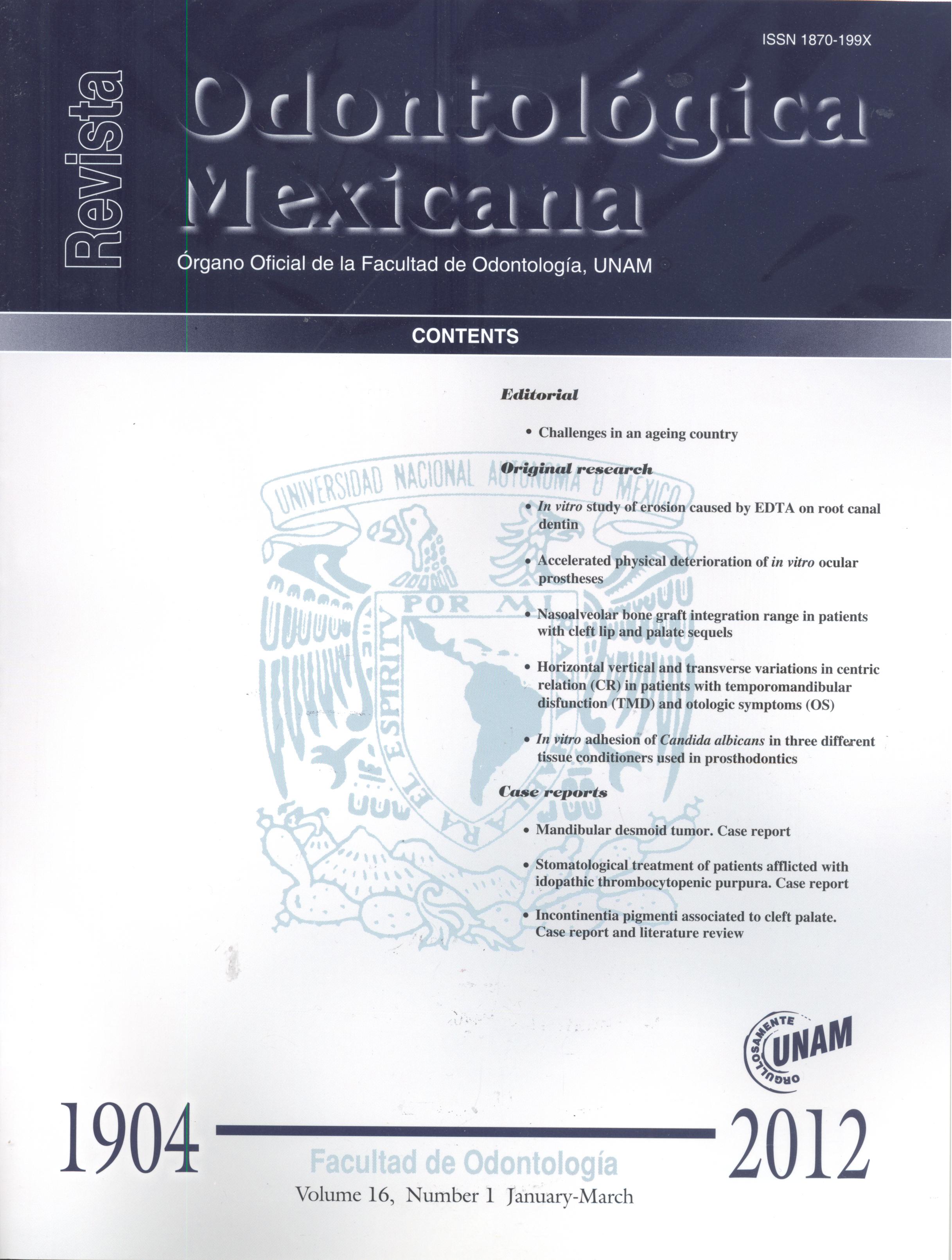In Vitro Adhesion of Candida albicans in Three Different Tissue Conditioners Used in Prosthodontics
Contenido principal del artículo
Resumen
Background: Tissue conditioners are materials used on the surface of denture bases for 4 to 7 days. These materials have an irregular surface, and if improperly used, there is the possibility of adherence of some microorganisms such as Candida albicans which could elicit Oral Candidiasis.
Objective: To quantify and analyze three tissue conditioners with the aid of an Optical Microscope (OM) as well as a Scanning Electron Microscope (SEM) at three inoculation phases (days)
Study:36 study samples were prepared through inoculation of in vitro Candida albicans at 24, 72 and 168 hour intervals. Samples were assessed through OM and SEM from which photographs were obtained at 500x, 2,000x and 5,000x magnifications.
Results Coe Comfort tissue conditioner presented an even surface with budding yeast adhesion and hyphae; Lynal presented a 3µ cracked surface at 72 and 168 hours with budding yeast; Flexacryl Presented a 4µ cracked surface at 72 and 168 hours and great amounts of budding yeasts.
Conclusions: Coe Comfort conditioner presents a more regular surface with less Candida albicans adhesion, whereas Flexacryl is the one presenting greater irregularities and Candida albicans adherence in its surface.
Detalles del artículo

Revista Odontológica Mexicana por Universidad Nacional Autónoma de México se distribuye bajo una Licencia Creative Commons Atribución-NoComercial-SinDerivar 4.0 Internacional.
Basada en una obra en http://revistas.unam.mx/index.php/rom.
